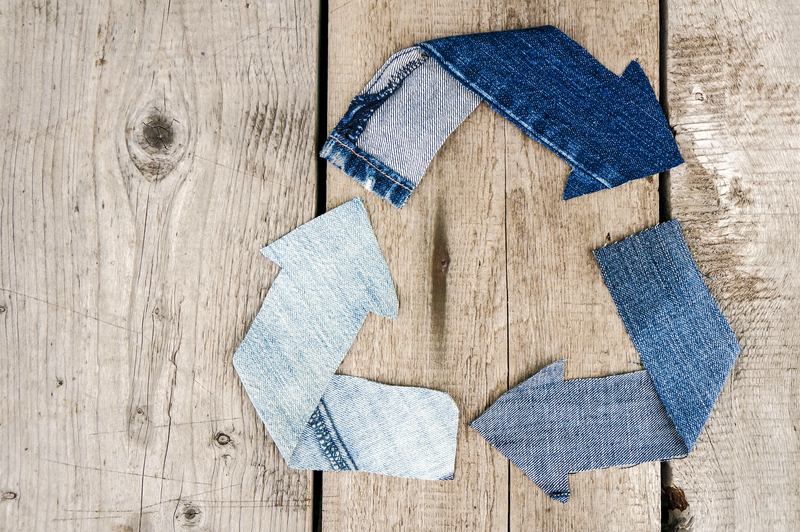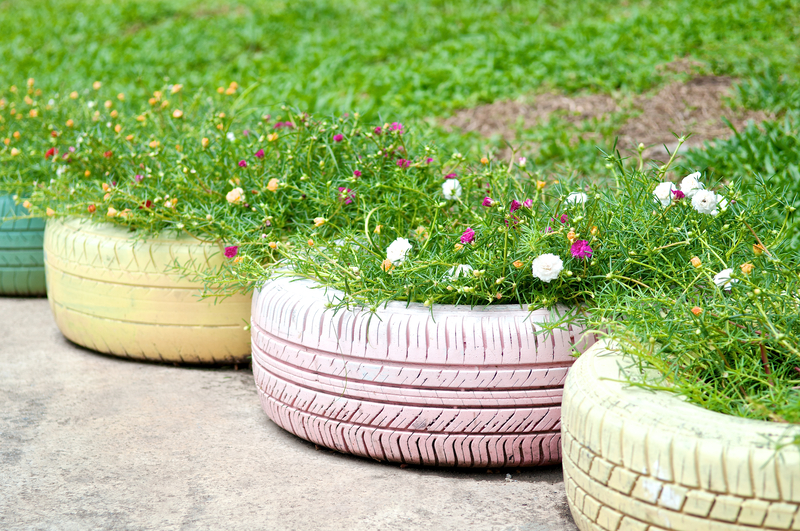Efficient and Affordable Techniques for Bulky Waste Disposal
Disposing of large and cumbersome items can be a daunting process, especially when considering both cost and environmental impact. Bulky waste, such as old furniture, mattresses, appliances, and construction debris, cannot be thrown out with regular trash. As the global population rises and consumerism increases, the challenge of dealing with bulky waste in an efficient and cost-effective manner has never been greater.
This comprehensive guide explores efficient and affordable techniques for bulky waste disposal, offering readers various actionable options. Whether you're a homeowner clearing out a garage, a landlord managing apartment turnovers, or a small business owner seeking to stay compliant with local regulations, these solutions can help you dispose of large items responsibly.

Understanding Bulky Waste: Definition and Challenges
Bulky waste refers to items too large for standard waste collection. Examples include:
- Old furniture (sofas, armchairs, tables, wardrobes)
- Appliances (refrigerators, washing machines, stoves, air conditioners)
- Mattresses and bedding
- Garden waste (branches, large shrubs)
- Construction debris (doors, windows, bathtubs, tiles)
- Carpets and rugs
The primary challenges with the disposal of bulky waste include:
- Transportation: Large items are difficult to move, especially for those without access to a truck or van.
- Environmental Impact: Bulk waste often contains materials that shouldn't end up in a landfill.
- Cost: Disposal fees, rental equipment, and labor can add up quickly.
- Regulations: Local guidelines and laws may dictate how, when, and where you can dispose of bulk items.
Eco-Friendly and Cheap Bulky Waste Removal Techniques
1. Garage Sales and Online Marketplaces
Before opting for disposal, consider whether your bulky items could be reused by someone else. Selling or donating is often the most cost-effective and environmentally-friendly option.
- Garage Sales: Organize a community sale. This is an excellent way to pass on old items while earning extra money.
- Online Platforms: Post items on websites such as Craigslist, Facebook Marketplace, OfferUp, or eBay. Many people look for second-hand items locally.
- Freecycle Groups: Join local online groups where people give and take unwanted items for free, ensuring that usable items stay out of landfills.
2. Donation to Charities & Nonprofits
Many charitable organizations accept bulky items in good condition. This is both an efficient and affordable way to dispose of bulky waste.
- Furniture Banks: These provide furniture to families in need and will often arrange free pick-up.
- Habitat for Humanity ReStores: Accept donations of appliances and building materials, sometimes providing pick-up services.
- Local Thrift Stores: Many will accept and even collect large items for resale.
3. Curbside Collection Services
Most municipalities offer scheduled bulky item pick-up days or on-demand services for a nominal fee. This is both easy and usually quite cheap compared to private haulers.
- Check your city or county website for details on collection schedules, fees, and restrictions.
- Some municipalities provide free annual or seasonal pickups for bulky waste.
- Place items at the curb as instructed to ensure collection.
4. Drop-Off at Local Recycling Centers or Transfer Stations
If you have access to transportation, local waste transfer stations or recycling centers often accept large waste items for a small fee--or sometimes for free, especially for residents.
- Check ahead for accepted materials and opening hours.
- Some centers sort and process items for recycling or reuse, reducing environmental impact.
- For appliances, ask about programs for refrigerant removal and metal recycling.
Cost-Effective Strategies for Bulky Waste Disposal
5. DIY Dismantling and Sorting
Bulky items are often cheaper to dispose of when broken down into smaller components. Many transfer stations charge less for sorted materials.
- Disassemble Furniture: Use basic tools to take apart sofas, beds, and tables.
- Sort Materials: Separate metal, wood, fabric, and electronics for easier recycling.
- Reduce Volume: Compressing or compacting waste can save money on hauling expenses.
6. Sharing or Pooling with Neighbors
Pooling your disposal needs with neighbors or friends can lower individual expenses.
- Organize a community bulky waste collection day. Hire a dumpster or truck together and share the cost.
- Some hauling companies offer discounts for bulk pickups from a single location.
- Coordinate with your Homeowners Association for community pickups.
7. Hiring a Private Junk Removal Service
While hiring a junk removal company may seem costly, comparing quotes can uncover affordable bulky waste removal services in your area.
- Ask about pricing structure: is it volume, weight, or per-item?
- Request an on-site quote for accuracy.
- Look for companies that prioritize recycling and donation over landfill dumping.
8. Municipal Waste Amnesty Days
Many municipalities hold waste amnesty events allowing locals to dump bulky items free of charge or at a significant discount.
- Monitor local calendars, city hall bulletins, or waste management social media for event dates.
- These events often accept electronics, large toys, and yard waste alongside furniture and appliances.
9. Renting a Dumpster or Skip
For substantial cleanouts, dumpster rental may be the most efficient way to remove bulky waste.
- Get quotes from multiple local providers.
- Choose the right size to avoid paying for unused capacity.
- Review your city's regulations regarding dumpster placement permits.
Bulky Waste Recycling: How to Be Green and Save Money
Recycling your bulky waste not only benefits the environment but also sometimes provides free or low-cost disposal options.
- Metal Recycling: Many scrap yards accept appliances, metal bed frames, and pipes. You may even earn money for some items!
- Mattress Recycling: Specialized facilities break down mattresses into recoverable steel, foam, and fabric components.
- Electronics Recycling: Ensure you dispose of computers, TVs, and other e-waste at certified recycling centers--some offer free drop-offs.
- Wood and Yard Waste: Some waste handlers have facilities to compost or chip untreated wood and garden debris, often accepting these for free or at reduced rates.
Legal and Environmental Considerations
Disposing of bulky items improperly can lead to fines or negative environmental consequences. Always:
- Verify local disposal guidelines--illegal dumping poses health and environmental risks.
- Safely handle hazardous components (such as refrigerants or batteries)
- Prioritize recycling and reuse, as landfills are a last resort.
- Document your disposal (receipts, donation records) in case of future audits.
If you're unsure about how to handle a particularly challenging item, contact your local waste authority. They can provide resources and direction for bulky waste disposal that's both efficient and affordable.

Tips for Reducing Bulky Waste Generation
While effective disposal is important, preventing and minimizing bulky waste is the best first step.
- Buy Quality: Invest in durable goods and repair instead of replacing whenever possible.
- Upcycle Creatively: Repurpose old furniture or materials into new, useful items.
- Rent or Borrow: For tools and equipment with infrequent use, consider renting, borrowing, or sharing with neighbors.
- Sustainable Home Design: Choose modular, easy-to-repair furnishings and finishes.
By adopting these practices, you decrease the frequency and financial burden of bulky waste removal--all while supporting a healthier environment.
Conclusion: Your Bulky Waste, Handled Efficiently and Affordably
Safely and affordably disposing of bulky items doesn't have to be a headache. With a mix of community resources, recycling options, and strategic planning, you can make bulky waste disposal both efficient and cost-effective.
Take the time to review local options, seek opportunities to reuse and recycle, and always consider the environmental impact of your choices. With these effective techniques for bulky waste management, tackling that overwhelming pile of unwanted items can be an easy and responsible process.
Remember: Investing a little effort up front can save you money, time, and help protect our planet for future generations.
Key Takeaways for Efficient and Affordable Bulky Waste Disposal:
- Prioritize reuse and donation for unwanted items
- Take advantage of local bulky waste collection days or transfer stations
- Dismantle and sort materials to reduce costs
- Investigate recycling centers for eco-friendly options
- Work with neighbors or community groups to lower expenses
For more advice or to find resources in your area, contact your local waste management authority or visit their website today.
